International Biochar Certification for Soil Application
The IBI certificate is for biochar used in soils and is primarily focused on ensuring long term carbon sequestration and ensuring that biochars do not contain elements that could harm soils or ecosystems. The EBC currently has two different biochar certifications; one for biochar used in soils and the other for biochar used as an animal feed additive.

Biochar Certification Programs
Currently, there are two voluntary biochar certification programs: one is administered by the International Biochar Initiative (IBI), the other is known as the European Biochar Certificate (EBC). A detailed comparison of the similarities and differences between the two programs can be found on the EBC website (EBC, 2018). Under both schemes, certification can only be applied to pure biochar products, not to blended products. The main difference is in the minimum carbon threshold; EBC’s minimum is 50% whereas IBI’s is 10% for a class 1 biochar. On one hand, the EBC requires certain tests that are optional under the IBI standard (e.g. molar O/C ratio, macro-nutrients phosphorus (P), potassium (K), magnesium (Mg), calcium (Ca), bulk density, surface area, and volatile matter). On the other hand, IBI standard requires certain tests that are optional under the EBC scheme (e.g. liming equivalence, particle size distribution, and additional mineral testing for arsenic (As), cobalt (Co), molybdenum (Mo), selenium (Se), boron (B), chlorine (Cl), sodium (Na) and germination inhibition testing).
IBI Certificate for Biochar
The IBI certificate is for biochar used in soils and is primarily focused on ensuring long term carbon sequestration and ensuring that biochars do not contain elements that could harm soils or ecosystems. Due to trademark limitations, IBI certification is currently available for biochars manufactured in Canada and the United States although work is underway to expand the certification program to other countries. The EBC currently has two different biochar certifications; one for biochar used in soils and the other for biochar used as an animal feed additive.
This article is focused on the IBI Certification Program for biochar used in soils. It is important to note that the laboratories recognized by either program must follow specific analytical methods.
Sequestration potential
Sequestration potential is assessed using two characteristics: the carbon content and hydrogen/carbon (H:Corg) ratio. A minimum threshold of 10% carbon is required for a charred material to be considered as biochar. Within the IBI program there is a three-tiered classification system based on carbon content. Class 1 includes biochars with 60%+, Class 2 is 30 – 59.9% and Class 3 is 10 – 29.9% carbon content. The H/C ratio is an indicator of carbon persistence, with lower values indicating carbons that are likely to remain in soils longer. To be IBI-certified, tested biochars can have a maximum H:CORG ratio of 0.70.
These two characteristics, as well as certain others, are assessed in ‘Test Category A: Basic Utility Properties’ (Figure 1), which is mandatory for the certification of biochar. This suite of tests also includes assessment of: moisture content, total ash content, total nitrogen, pH, electrical conductivity, liming value and particle size distribution. The method of analysis and thresholds are found in the IBI, 2015.
Soil Toxicant Assessment
The second area of focus includes a soil toxicant assessment. Toxicity is assessed by the amount of individual metals and minerals as well as 16 priority polycyclic aromatic hydrocarbons (PAHs), 17 PCDD/PCDFs and 7 priority PCBs contained in a particular biochar. These characteristics are assessed under ‘Test Category B: Maximum Allowed Thresholds’ (MAT) which is also mandatory for biochar certification (see Figure 2). (The reference range of MATs was based on a survey of MATs from Australia, Canada, EU, UK and the US.)
Toxicant levels for certifiable biochars must be below the MAT that has been established for soil amendments, composts and/or fertilizers in the area of jurisdiction where biochar is produced and/or intended to be used (IBI, 2015).
Advanced Analysis and Soil Enhancement Properties
A third test category known as Advanced Analysis and Soil Enhancement Properties is optional. This suite of tests assesses total and available nutrients including nitrogen (N), phosphorus (P), potassium (K), calcium (Ca), magnesium (Mg) and sulfur (S). Volatile content and surface area are also assessed.
While there are many academic institutions with the equipment and capability to conduct biochar analysis, these laboratories are not necessarily available to provide laboratory analysis for commercial producers unless they are using the biochar for research projects within their institutions. There are exceptions to this, including Cornell’s pyrolysis laboratory.
Only a few commercial laboratories conduct the required testing for IBI certification, although more have expressed an interest in providing various types of biochar analysis. Currently in the United States, Category A and C testing is done by Control Laboratories located in Watsonville, CA and by the Gabilan Laboratory in Salinas, CA. Agrinova is a R&D facility in Canada expected to be operational in 2019 for IBI analysis as well. Toxicant testing is done by Pace Analytical Services which has locations across the United States. Other laboratories conduct biochar analysis but may not offer the full suite of tests required for IBI certification or may use alternative methods for analysis. Fees for lab analysis may vary considerably. Analytical prices range for as low as $20 up to more than $1500 for each analysis in the US. It all depends on the complexity and the equipment required for the analysis. As additional laboratories offer biochar testing that aligns with IBI certification program, their information will be added to the IBI’s website.
An application fee of $500 is required for IBI certification. Once all laboratory analysis and application forms are submitted to IBI, certification generally takes less than 60 days. Additional details on the IBI certification program can be found at: https://biochar-international.org/application-form-for-ibi-biochar-certification/.
Companies that have current IBI certification are listed on the following IBI webpage: https://biochar-international.org/biochar-manufacturer-directory/ .
EBC certified producers are listed on the following webpage: http://www.european-biochar.org/en/producer.

References and web pages of interest
EBC, 2018. http://www.european-biochar.org/en/ebc-ibi
IBI. 2018. https://biochar-international.org/
IBI. 2015, Standardized Product Definition and Product Testing Guidelines for Biochar That Is Used in Soil. https://www.biochar-international.org/wp-content/uploads/2018/04/IBI_Biochar_Standards_V2.1_Final.pdf















